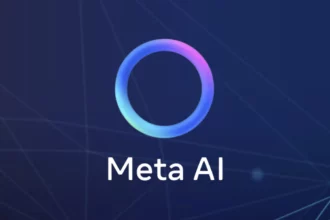What if the future of artificial intelligence could be both groundbreaking and safe? The recently amended California AI Bill, officially known as the Safe and Secure Innovation for Frontier Artificial Intelligence Models Act, aims to strike that balance by providing a regulatory framework for AI development that acknowledges its tremendous potential while mitigating risks. As California takes the lead in addressing the unprecedented challenges posed by rapidly evolving technologies, this legislation shines a spotlight on the need for thoughtful oversight and responsible innovation in a landscape that could shape the future of society itself. With innovation racing ahead, can this bill ensure that progress does not come at the expense of safety?
Table of Contents
ToggleWhat is the Safe and Secure Innovation for Frontier Artificial Intelligence Models Act?
The Safe and Secure Innovation for Frontier Artificial Intelligence Models Act, commonly referred to as Senate Bill 1047, represents a significant legislative effort by California to confront and reduce the potential risks emerging from advanced artificial intelligence (AI) systems that may soon exceed our current understanding and control. In a rapidly evolving technological landscape, this act acknowledges the profound implications of AI innovation while seeking to ensure that such advancements do not jeopardize public safety or societal security.
Introduced by Senator Wiener and supported by various co-authors, this bill establishes a comprehensive regulatory framework tailored to oversee developers of advanced AI models. One of the pivotal aspects of the act involves mandates requiring developers to certify the safety of their AI systems before they undergo training. This precautionary measure aims to prevent the deployment of potentially hazardous AI capabilities by ensuring that any dangerous possibilities are rigorously evaluated and addressed. The act also imposes strict reporting obligations on developers to document and report any AI safety incidents promptly, fostering a culture of accountability and transparency in the industry.
Furthermore, the act seeks to create a division within the existing Department of Technology, designated the Frontier Model Division, responsible for administering and enforcing these regulations. This new division will review annual certification reports, facilitate research into safe AI deployment, and oversee audits to ensure compliance with established standards. Such measures reflect a proactive approach to potential threats to public safety, including the risk of AI technologies being misused for harmful purposes, such as cyberattacks or the development of autonomous weapons.
Additionally, the bill recognizes that while AI holds immense promise for driving innovation in fields like healthcare, environmental science, and various other sectors, it simultaneously carries inherent risks that must be carefully managed. By enacting this legislation, California is not only aiming to safeguard its citizens but also to position itself as a leader in responsible AI development on a global scale.
As we embark on this new technological frontier, it becomes crucial to balance the advancement of artificial intelligence with ethical considerations and public safety, making acts like Senate Bill 1047 pivotal in shaping the future of AI regulation.
How does the California AI Bill address potential risks from advanced AI models?
The California AI Bill, formally known as the Safe and Secure Innovation for Frontier Artificial Intelligence Models Act, establishes important protocols aimed at mitigating potential risks that may arise from advanced AI models. Specifically, the bill mandates that before developers commence training any non-derivative covered AI models, they must conduct a thorough evaluation to determine whether the model might possess hazardous capabilities. This risk assessment is crucial to preventing any unforeseen dangers that these sophisticated AI systems may introduce.
If developers identify any concerns regarding a model’s hazardous potential, they are required to implement a full shutdown mechanism that allows for immediate deactivation of the AI system until further assessments can confirm its safety. This proactive measure is designed to provide a critical layer of security, ensuring that potentially dangerous AI technologies do not inadvertently operate without proper oversight.
Moreover, the California AI Bill emphasizes the need for ongoing accountability by requiring developers to submit an annual compliance certification to the newly established Frontier Model Division. This certification not only confirms adherence to safety protocols but also allows for continued scrutiny of AI systems that are deemed at risk of compromising public safety. By instituting these rigorous oversight mechanisms, the bill aims to balance the remarkable potential advancements in AI technology with a steadfast commitment to safeguarding the well-being of the public and the integrity of social systems.
In this regulatory framework, the California legislature recognizes both the transformative power of artificial intelligence and the imperative for stringent governance to ensure that its deployment is ethical, responsible, and aligned with the state’s commitment to innovation while protecting its residents from potential harms.
What requirements does the bill impose on developers of AI models?
The Safe and Secure Innovation for Frontier Artificial Intelligence Models Act presents several critical requirements for developers of AI models aimed at ensuring safety and accountability in the development process. Specifically, developers must complete an independent audit conducted by a third-party auditor starting January 1, 2028. This audit is designed to evaluate adherence to the bill’s regulations and document instances of non-compliance, thereby fostering transparency and accountability within the industry.
Additionally, developers are mandated to report any safety incidents pertaining to their AI models to the Frontier Model Division within 72 hours. This prompt reporting is essential for timely assessment and mitigation of any potential risks, enhancing public safety and enabling swift responses to unforeseen issues. Moreover, the bill emphasizes the importance of transparency regarding pricing for commercial access to AI models, ensuring that users are not subjected to exploitative or hidden costs.
Lastly, the bill explicitly prohibits any form of unlawful discrimination in the deployment and operation of AI models, aligning with principles of fairness and equity. By imposing these comprehensive requirements, the legislation aims to cultivate an environment where AI development is conducted responsibly, ethically, and with a profound commitment to public welfare.
Why is the California AI Bill significant for artificial intelligence innovation?
California’s AI Bill holds immense significance for the landscape of artificial intelligence innovation due to the state’s pivotal role as a global leader in this field.
By establishing comprehensive regulations, the bill acknowledges the profound benefits that advanced AI technologies can provide across important sectors, such as healthcare and climate science, which include enhancing diagnostic accuracy, optimizing treatment plans, and improving data analytics for environmental sustainability.
However, the bill does not overlook the inherent risks associated with unchecked AI development, which could lead to severe and unintended consequences, including ethical dilemmas, security vulnerabilities, and social inequities. It emphasizes the critical need for a regulated framework that ensures AI advancements are achieved responsibly, particularly with respect to public safety and ethical considerations.
Through its rigorous provisions for safety evaluations, accountability measures, and transparent reporting, the legislation aims to cultivate a culture of responsible innovation. This balanced approach enables California to foster an environment that not only promotes technological breakthroughs but also safeguards the interests and well-being of its citizens. In this way, the California AI Bill serves as a vital step toward harmonizing the pursuit of innovation with the imperative of safety, thereby setting a precedent for other states and countries to follow in their regulatory efforts.
Who will oversee compliance with the Safe and Secure Innovation for Frontier Artificial Intelligence Models Act?
The enforcement of compliance for the Safe and Secure Innovation for Frontier Artificial Intelligence Models Act will be managed by the newly created Frontier Model Division within the California Department of Technology. This dedicated division will play a crucial role in overseeing the ACT by reviewing annual certification reports submitted by AI developers, ensuring they meet safety and ethical standards.
In addition to report evaluation, the Frontier Model Division holds the authority to impose civil penalties for violations, which serves as a strong deterrent against non-compliance. It will also release summarized findings related to compliance with the act, thereby fostering transparency and accountability in the AI industry.
This structured oversight mechanism not only aims to protect public safety but also encourages developers to adhere to best practices in AI innovation, cultivating an environment where responsible technological advancements can thrive while minimizing risks associated with advanced AI systems.
By implementing this rigorous oversight system, California positions itself as a leader in promoting safe and ethical AI development, contributing to a nationwide dialogue on the importance of effective regulation in the rapidly evolving field of artificial intelligence.




